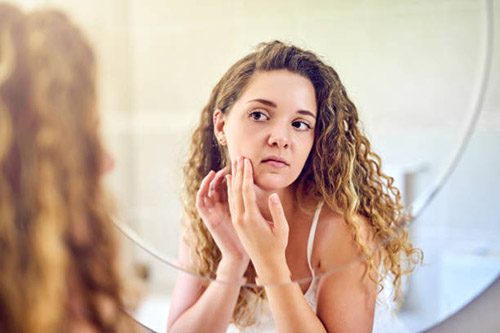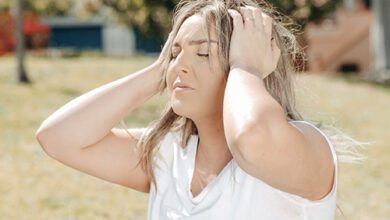
Very dry skin requires special attention. Here is something you should know and to do with our advice and adapted products. The causes can be multiple: prolonged exposure to the sun for years, very calcareous water, a dry and cold atmosphere, …
How does your skin work and how do you know if it is dry?
Before looking into the ideal beauty routine for dry skin, it is important to understand how the skin works and to recognize the symptoms of dry skin. These result in a feeling of tightness, tingling and a rough touch. They can be exacerbated by the onset of cold weather or changes in temperature (a very cold place and a heated place, for example).
A director of Bioderma medical strategy, explains that the skin is made up of several layers, including the epidermis and the stratum corneum, the most “superficial and protective”. “This is where the treatments you apply act, they do not penetrate to the dermis”, explains the expert. And it is at the level of the epidermis that skin dryness problems can occur.
This dryness can be explained in two ways: the water in the cells of the skin evaporates too quickly and the cells do not have time to make new ones, or the lipids (fat) which bind the cells together between them is insufficient. “There can sometimes be both problems at the same time, that’s why you don’t necessarily have to make a difference between dehydrated skin and dry skin”.
Is dry skin a sign of aging?
The skin is covered with a protective film composed of fatty substances and water which protects it from drying out and external aggressions. The sebaceous glands produce the greasy film, the sebum, which mixes with the sweat secreted by the sweat glands. The activity of these glands decreases with age, especially in women after menopause (after the age of 60, the sebaceous glands of women have lost 40% of their activity). The skin is then less hydrated and becomes drier and rougher.
What beauty routine for very dry skin?
Oil or moisturizer? That is the question. Since the problem can come from both a lack of water and “fat” (lipids), specialists recommend a complete beauty routine. “Start by removing your makeup well in the evening, preferably with a product that respects the skin such as micellar water enriched with moisturizing agents, a cleansing oil or a cleansing milk”. Then, move on to the morning hydration phase using a serum and cream “containing a blend of moisturizing ingredients that retain water that naturally evaporates from the skin or humectant ingredients that scavenge water in the skin. atmosphere”.
You can also help the skin to reconstitute its “lipid cement” by using only fatty substances which will act as “gap fillers” and prevent the water from evaporating too much. The two solutions seem to be complementary.
When should you consult a dermatologist?
It is best to see a doctor when:
- Dry skin problems are accompanied by redness or a rash,
- Moisturizers do not manage to relieve you,
- Itching wakes you up at night,
- The lesions are infected.
The doctor will examine your skin and look for eczema, infection, or the cause of this dry skin. He can recommend emollient products to improve the hydration of your skin. If necessary, he may prescribe a topical treatment based on topical corticosteroids to reduce the irritation and inflammation associated with dry skin.







